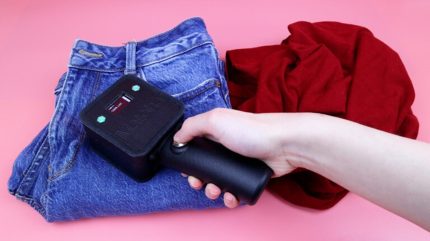
Matoha manufactures AI-powered material identification scanners and aims to address a primary obstacle in textile recycling, the precise identification and segregation of various fibre types.
Matoha’s innovation lies in its creation of manually operated scanning tools capable of swiftly pinpointing the composition of textile materials in under a second.
This technology empowers enterprises to categorise waste streams effectively without substantial infrastructure investments or resorting to laboratory analyses, said the company.
It adds that its scanners are designed for ease-of-use with minimal training requirements. It can enhance human efficiency in segregating materials into valuable categories for reuse and recycling, thereby expediting the sorting process.
Matoha CTO and co-founder Hans Chan said: “This investment will enable Matoha to take our technology to the next level. With this investment we can have a greater impact on processing end-of-life textiles. This will include improving the AI capabilities in sorting for recycling and reuse. We are also looking at automation which is essential due to the sheer volume of textiles waste.”
The company reports that each individual in Europe contributes over 15kg of textile waste annually and a significant proportion of this waste, approximately 85%, originates from household textiles and apparel discarded by consumers.
Nonetheless, only 1% undergoes fibre-to-fibre recycling, with only about 10% repurposed for alternate uses.
It explains that roughly one-third of end-of-life textiles find new life through reuse or export, but this leaves an estimated 60% uncollected, destined for landfills or incineration within the UK and Europe.
Moreover, a portion of the exported textile waste is deemed unsuitable for reuse due to its condition, quality, or lack of demand.
Produced domestically by Matoha’s team, the product range includes portable scanners for on-the-spot assessments as well as integrated desktop versions suited for large-scale waste management facilities.
Chan added: “Current automated solutions are hugely expensive and too big in scale for the majority of businesses. Our strategy is to offer our customers more nimble, high-performance, and economically reasonable automation systems. Our dream is that every end-of-life garment will pass through a Matoha system. We appreciate the ongoing and targeted support of Archipelago Ventures and Circular Plastics Accelerator, and we are really looking forward to working with them to build the business.”
With this investment round complete, Matoha plans to refine its handheld device capabilities.
The next stage will focus on enhancing automation and scaling up its technology through AI-driven robotic systems with completion targeted for the second half of 2025.
Spearheaded by Archipelago Ventures and the Circular Plastics Accelerator, the funding round also saw participation from Conduit Connect, British Design Fund and Fashion for Good.
Archipelago Ventures founding partners Justin Guest said: “Solutions like Matoha’s are critical to unlocking barriers and enabling a circular textiles economy. Identification of material types and the ability to sort textiles is key to valorisation of end-of-life textiles and fabrics.
“We have invested in Matoha because of its ability to generate significant traction, with customers attracted by its low-cost, fast and accurate identification devices. The investment Matoha has secured will see evolution of this core technology to a robotics solution that will unlock textiles sorting at scale.”



